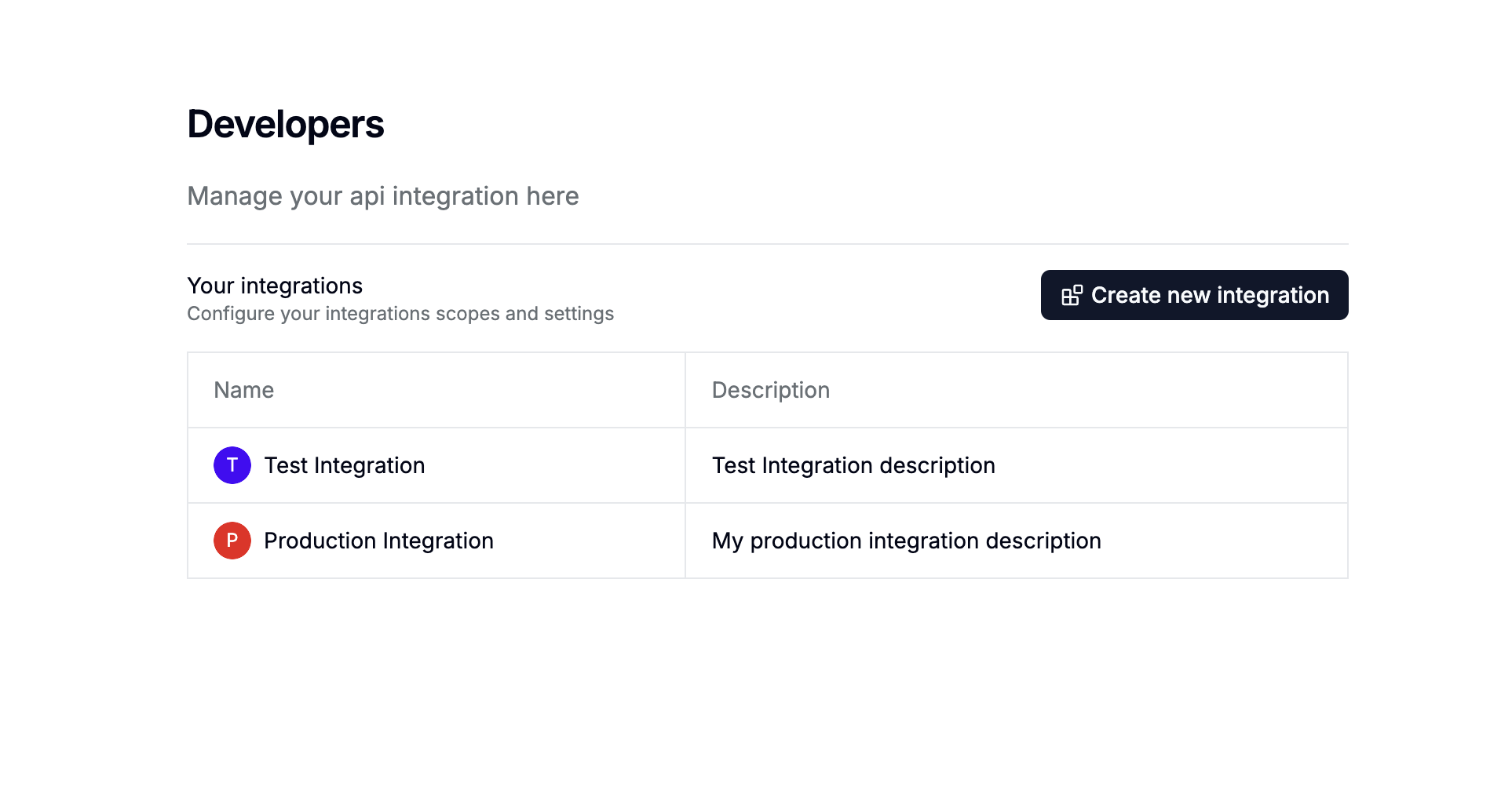Cuuro webhooks
Cuuro webhooks allow you to receive event notifications from Cuuro, such as when an analysis is created or completed. When an event occurs, Cuuro will send an HTTP POST request to your webhook endpoint configured for the event type. The payload carries a JSON object. You can then use the information from the request’s JSON payload to trigger actions in your app, such as sending a notification or updating a database. Cuuro uses Svix to send our webhooks.Creating a webhook
To create a webhook for your Integration, you’ll need to follow these steps: Navigate to the Settings > Developers page in your Cuuro dashboard.


- URL: Enter the URL of the endpoint where you want to send the webhook. We recommend using webhook.site to test your webhook.
- Events: Select the events you want to listen to. You can select multiple events.
Integration Events
startup.created
startup.created
This event is triggered when a new target company is created. The event payload contains the created company’s id.Here’s an example payload:
startup.created
analysis.created
analysis.created
This event is triggered when a new analysis is created. The event payload contains the analysis id.Here’s an example payload:
analysis.created
analysis.completed
analysis.completed
This event is triggered when a new analysis is completed. The event payload contains the analysis id.Here’s an example payload:
analysis.completed
Signature Verification
To ensure that the API route receiving the webhook can only be hit by your app, there are a few protections you can put in place:- Verify the request signature: Svix webhook requests are signed and can be verified to ensure the request is not malicious. To learn more, check out Svix’s guide on how to verify webhooks with the svix libraries or how to verify webhooks manually.
- Only accept requests coming from Svix’s webhook IPs: To further prevent attackers from flooding your servers or wasting your compute, you can ensure that your webhook-receiving api routes only accept requests coming from Svix’s webhook IPs, rejecting all other requests.